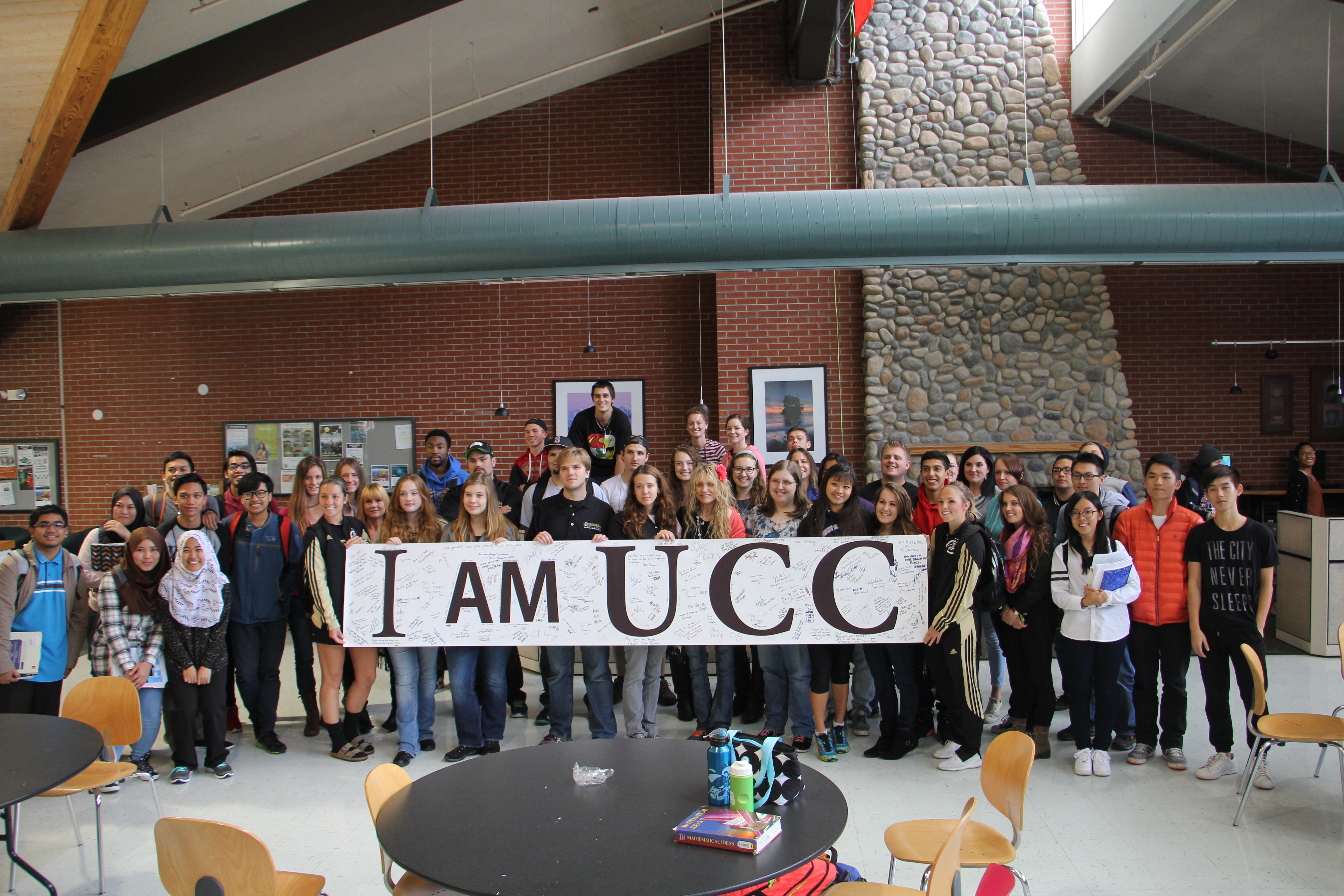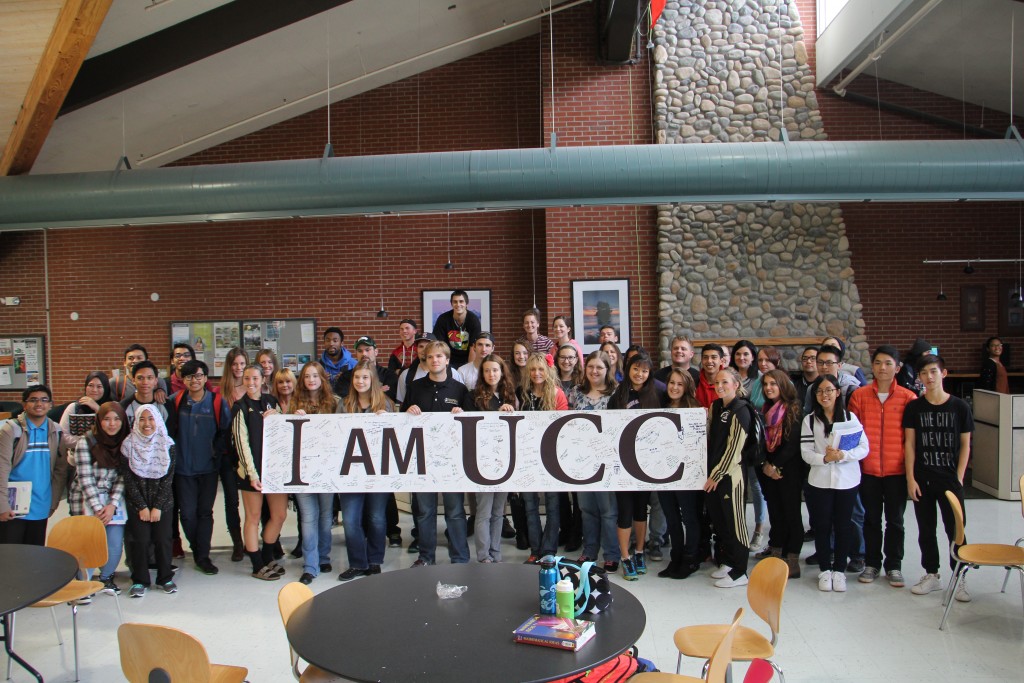

By Eric Trent
In wake of the recent shootings at Umpqua Community College, students look back at their own college campuses and examine whether they face the dangers that Roseburg recently experienced.
Located in the Pacific Northwest, about two-thirds of the way down the length of Oregon, with a population of 21,000, Roseburg is in many ways similar to the small, rural community here in Port Angeles.
Their athletic program is in the Northwest Athletic Conference just like our own Peninsula College Pirates, and our women’s basketball team faced Umpqua in the semi-finals of the NWAC tournament in Kennewick in March 2015.
“You have another level of contact with that college, as a sister institution, because you do compete with them in athletic events. It adds a sense of closeness to it,” President of Penin-
what the campus looks like, I know how it’s laid out. In a lot of ways, it has a lot of similarities to Peninsula,” Robins said.
As students consider the possibilities of something equally atrocious happening at their own campus, they regard their own present policies that are in place to protect students here at Peninsula.
“We’re going to continue doing what we’ve been doing, which is the college has a comprehensive emergency manage- ment plan that’s based on national best practices and incident command train- ing. It’s designed to cover everything, any possible emergency,” Robins said.
“There’s a preparation stage to it. There’s training about what happens during the actual emergency and the how to recover business operations. Of course, it’s different for every scenario,” Robins said.
“All the senior leadership on campus has gone through the national training to get certified in that incident command process. We do regular, sort of tabletop scenarios where we say ‘ok, here’s a situation, how do we deal with it?’” Robins said.
Coincidentally, Peninsula College was pro-actively dealing with the possibility of an emergency just prior to the Umpqua shooting.
“In fact, we were planning to do a lockdown drill before Umpqua happened. That’s just a normal part of what we do.
We try to do at least one lockdown drill a year, so that faculty and staff and students are aware of what to do in a situation like that,” Robins said.
“Reacting to those sorts of situations is always in the back of our heads. That’s part of doing business at the college; to be thinking about how to respond to things that are out of the ordinary,” he said.
Public records documents show more than 400 incidents since 2005, in which the Port Angeles Police responded to a call for service at Peninsula College.
The calls ranged from lost property to felony assault. Of those 400 incidents, only six involved a firearm.
One call was from a man (paranoid) near the power lines, saying that “two deer or people” were following him and “may shoot him with a gun.”
Four involved people target-shooting near the power lines behind the college, and the last involved a construction employee who was fired, and threatened to “come back and take care of everybody,” according to the police report.
So, out of 400 incidents at Peninsula College, in the last ten years, with six in- volving firearms, none of those were tied to students.
Campus Security at Peninsula College also closely monitors situations that arise on campus and reacts accordingly to those incidents.
“We really have a good security team here. They really are pro-active, very student-focused and they’re really concerned with the safety of students,” Robins said.
Peninsula College, the Sheriff’s Office and the Police Department have also builta rapport with each other over the years.
“We have really, really close-working relationships with the Sheriff’s Department, with the Police Department, with Fire & Rescue, and other first responders,” Robins said.
“When we drill on situations, they’re very often involved with the drill. Police and Sheriff’s do regular walkthroughs, so they know the buildings,” Robins said.



